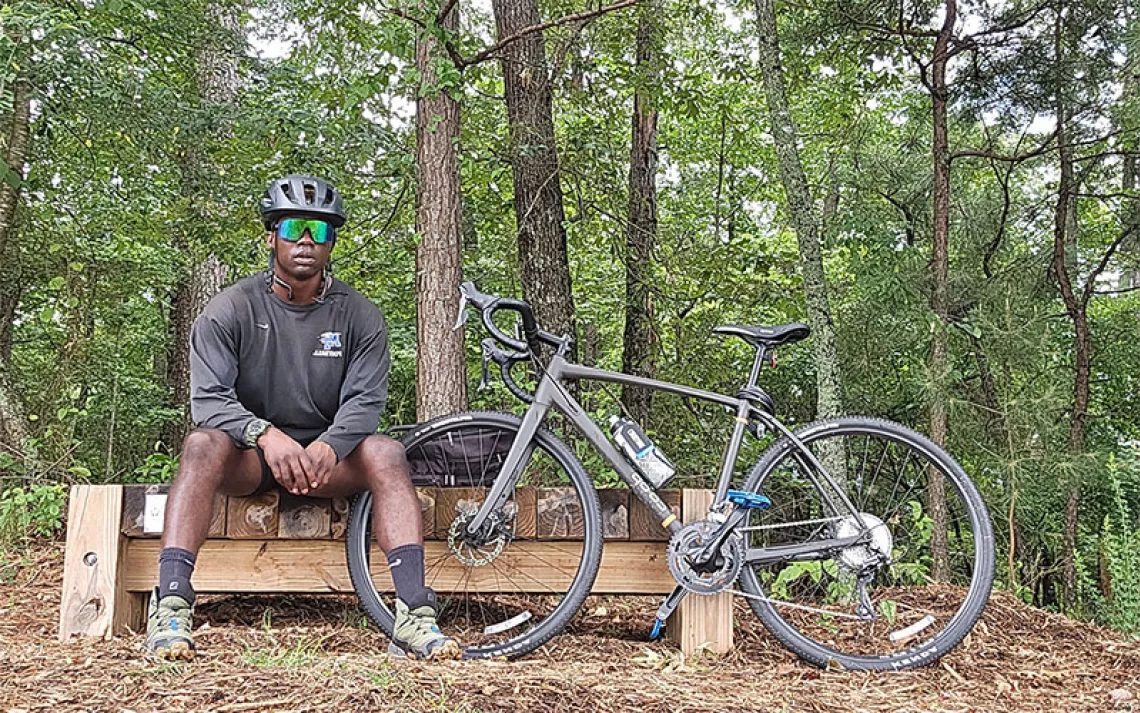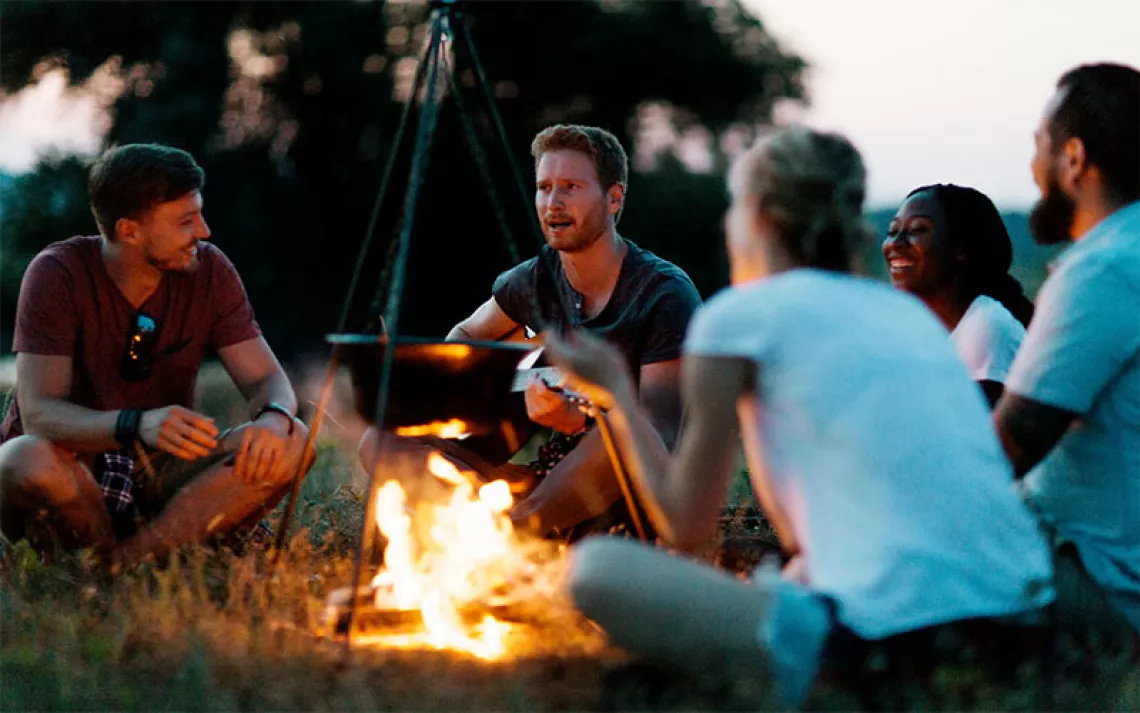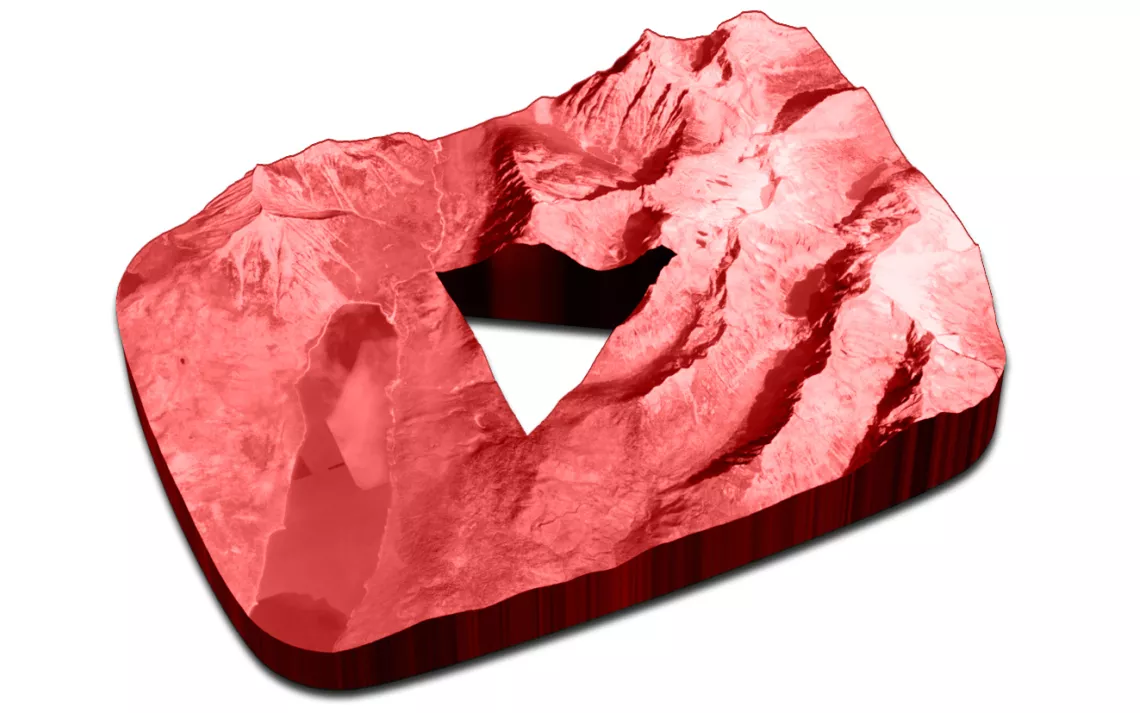The Sierra Club Is Committed to Equity in the Outdoors
Everybody deserves the opportunity to feel at home in the woods

Matthew Shepard was tortured and left for dead in the great outdoors. Shepard, you may recall, was a gay college student at the University of Wyoming when, in 1998, two men beat him and tied him to a fence post near Laramie (one of the perpetrators later tried to justify the assault by saying that Shepard had made a pass at him). The next morning, Shepard was spotted by a cyclist who initially thought the limp figure on a remote roadside was a scarecrow. Shepard died six days later. He was 21.
The high plains outside of Laramie are beautiful—broad and open, the firmament there unbroken by any city lights. For Shepard, it was also a murderous place. No wonder, then, that some gay, lesbian, and transgender people feel unsafe in the natural world's wild and lonely landscapes. If you're afraid of being far from help and trapped by someone who wishes you harm, a trip into the woods is no getaway.
Queer folk aren't the only ones who have reason to feel uneasy far from town or farm. During Jim Crow, the backwoods were often the site of lynchings. Here's Billie Holiday's idea of a "pastoral scene": "Southern trees bear strange fruit / Blood on the leaves and blood at the root." Is it any surprise that some African Americans might find their enjoyment of the outdoors complicated by this history?
Women, too, need to stay on their guard in wilderness, because—let's face it, guys—a macho ethos still dominates outdoors culture. On the Colorado River, female river guides have been harassed and, in some cases, physically assaulted by their male coworkers. A survey of 500 female scientists found that 71 percent had experienced harassment while conducting experiments in the field.
When poring over topo maps and gear lists, white dudes like me can forget the privilege they have in making a vacation out of a solo trip into the wilderness. Such adventures appeal to me, in part, because I like the hint of lawlessness in wildlands, the wilderness remaining (just barely) a place beyond the dictates of the government and the corporation. But for some people, that remoteness from society can be frightening.
Until, well, until it's not anymore.

Make every day an Earth Day
Get articles like this one sent directly to your inbox.
With this action you affirm you want to receive Sierra Club communications and may vote on policy designated by the Sierra Club Board.
As Emily Zak reports in "LGBTQ+ Adventurers Are All About Getting Out in the Woods", a group called the Venture Out Project organizes hikes and backcountry skiing and backpacking trips for LGBTQ+ people who haven't had the opportunity to explore the outdoors. More often than not, participants find they can be fully themselves when they leave civilization behind. "There weren't any mirrors. There weren't any bathrooms," Venture Out founder Perry Cohen says. "It was just me." Malcolm Ribot, a trans man who as a child was an eager Girl Scout, has also found a feeling of wholeness in the outdoors. "Nature doesn't judge you," he says. For Cohen, Ribot, and other queer outdoor adventurers, the wild isn't a place of fear. It's a place of liberation.
All people—regardless of race, gender, or sexual orientation—deserve the right to experience the freedom of wildlands. Which is why, among its many other tasks, today's Sierra Club is dedicated to ensuring that everybody feels at home in the woods.
This article appeared in the March/April 2018 edition with the headline "Outdoors for All."
 The Magazine of The Sierra Club
The Magazine of The Sierra Club



